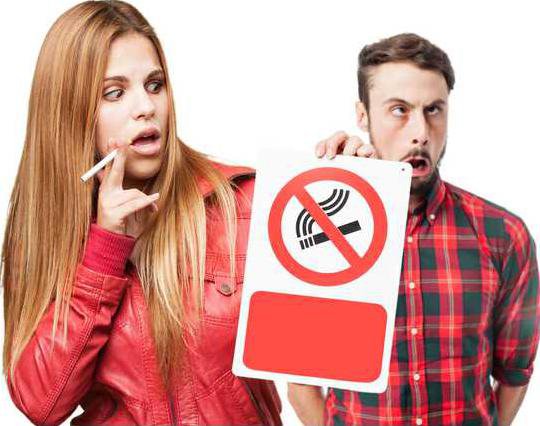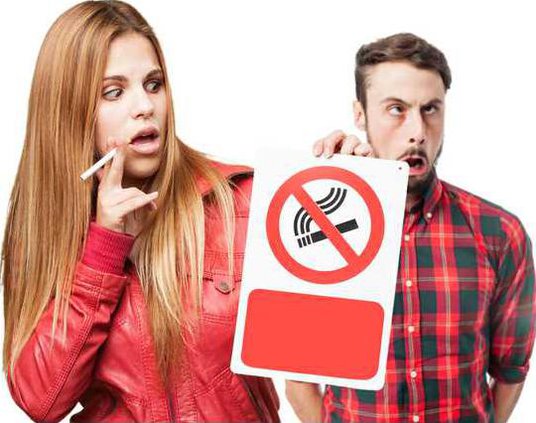In a notable step in the government's decades-long "crackdown" on tobacco products, the Department of Housing and Urban Development proposed Thursday a rule to ban smoking in 1.2 million public housing units in the U.S., according to The Washington Post.
Jerry Markon and Lisa Rein reported for the Post the rule "would require more than 3,100 public housing agencies to go smoke-free within several years." The government would task those agencies with creating policies to prohibit tobacco in living units, indoor common areas, administrative offices and outdoor areas near facilities.
Concern for the health of children and the elderly in particular spurred the ban, Bill Chappell wrote for NPR.
"We have a responsibility to protect public housing resident from the harmful effects of secondhand smoke, especially the elderly and children who suffer from asthma and other respiratory diseases," NPR quoted HUD Secretary Julin Castro as saying. "This proposed rule will help improve the health of more than 760,000 children and help public housing agencies save $153 million every year in health care, repairs and preventable fires."
The announcement Thursday followed other federal government efforts to bar smoking in public housing, Elliot Hannon wrote for Slate.
About 20 percent of federally subsidized housing in the U.S. or more than 600 public housing agencies covering 200,000 households have voluntarily banned smoking inside, Slate noted.
Those opposed argue the move is an overreach, preventing people from doing an otherwise legal activity in their own homes, according to Slate.
"Officials say, however, there is no risk-free level of exposure to secondhand smoke, making eliminating secondhand smoke altogether the only option," Slate's report indicated.
NBC New York reported agencies plan to "engage" residents while weighing the proposal's worth. Tenants in New York's public housing, the largest in the U.S., gave mixed reaction to the news, and one opponent told NBC New York without cessation services, enforcing the ban could just lead to evictions.
Jamila Michener, assistant professor of government at Cornell University, called the rule a "misdirection of energy," according to NBC New York.
But the move is "natural," having happened already in other venues, Michael Siegel, professor at Boston University's School of Public Health, told NBC New York.
"This is a natural step to continue to spread the smoke-free protections that started with workplaces and then spread to restaurants and bars," NBC New York quoted Siegel as saying. "Secondhand smoke is a serious threat to their health in a major way, particularly if there are children living there."
Michele Gorman wrote for Newsweek smoking rates have dropped in New York in the past 20 years, but tobacco use is most prevalent in New Yorkers with "limited education and income."
Lower rates don't mean millions aren't affected secondhand, though.
"Despite progress in implementing smoke-free laws in indoor public places and workplaces, about 58 million Americans remain exposed to secondhand smoke, including 15 million children ages 3 to 11," Newsweek's piece read.
According to Newsweek, public housing agencies would have to apply the ban no later than 18 months after its implementation.
Jerry Markon and Lisa Rein reported for the Post the rule "would require more than 3,100 public housing agencies to go smoke-free within several years." The government would task those agencies with creating policies to prohibit tobacco in living units, indoor common areas, administrative offices and outdoor areas near facilities.
Concern for the health of children and the elderly in particular spurred the ban, Bill Chappell wrote for NPR.
"We have a responsibility to protect public housing resident from the harmful effects of secondhand smoke, especially the elderly and children who suffer from asthma and other respiratory diseases," NPR quoted HUD Secretary Julin Castro as saying. "This proposed rule will help improve the health of more than 760,000 children and help public housing agencies save $153 million every year in health care, repairs and preventable fires."
The announcement Thursday followed other federal government efforts to bar smoking in public housing, Elliot Hannon wrote for Slate.
About 20 percent of federally subsidized housing in the U.S. or more than 600 public housing agencies covering 200,000 households have voluntarily banned smoking inside, Slate noted.
Those opposed argue the move is an overreach, preventing people from doing an otherwise legal activity in their own homes, according to Slate.
"Officials say, however, there is no risk-free level of exposure to secondhand smoke, making eliminating secondhand smoke altogether the only option," Slate's report indicated.
NBC New York reported agencies plan to "engage" residents while weighing the proposal's worth. Tenants in New York's public housing, the largest in the U.S., gave mixed reaction to the news, and one opponent told NBC New York without cessation services, enforcing the ban could just lead to evictions.
Jamila Michener, assistant professor of government at Cornell University, called the rule a "misdirection of energy," according to NBC New York.
But the move is "natural," having happened already in other venues, Michael Siegel, professor at Boston University's School of Public Health, told NBC New York.
"This is a natural step to continue to spread the smoke-free protections that started with workplaces and then spread to restaurants and bars," NBC New York quoted Siegel as saying. "Secondhand smoke is a serious threat to their health in a major way, particularly if there are children living there."
Michele Gorman wrote for Newsweek smoking rates have dropped in New York in the past 20 years, but tobacco use is most prevalent in New Yorkers with "limited education and income."
Lower rates don't mean millions aren't affected secondhand, though.
"Despite progress in implementing smoke-free laws in indoor public places and workplaces, about 58 million Americans remain exposed to secondhand smoke, including 15 million children ages 3 to 11," Newsweek's piece read.
According to Newsweek, public housing agencies would have to apply the ban no later than 18 months after its implementation.



